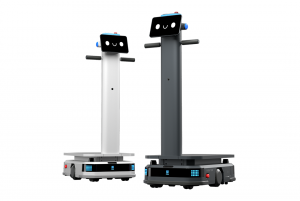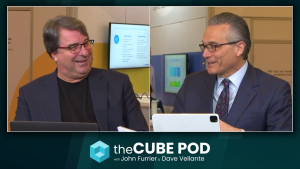The Structure of NFC: Paving Ground for Mobile Payments Revolution
![]() Visa announced its plan to accelerate the migration to EMW contact and contactless chip technology in the United States. The adoption of dual-interface chip technology will help prepare the U.S. payment infrastructure for the arrival of NFC-based mobile payments by building the necessary infrastructure to accept and process chip transactions that support either a signature or PIN at the point of sale.
Visa announced its plan to accelerate the migration to EMW contact and contactless chip technology in the United States. The adoption of dual-interface chip technology will help prepare the U.S. payment infrastructure for the arrival of NFC-based mobile payments by building the necessary infrastructure to accept and process chip transactions that support either a signature or PIN at the point of sale.
“By encouraging investments in EMV contact and contactless chip technology, we will speed up the adoption of mobile payments as well as improve international interoperability and security,” said Jim McCarthy, global head of product, Visa Inc. “As NFC mobile payments and other chip-based emerging technologies are poised to take off in the coming years, we are taking steps today to create a commercial framework that will support growth opportunities and create value for all participants in the payment chain.”
![]() Chip technology does not only accelerate mobile concepts, it is also expected to secure payments into the future through the use of dynamic authentication. With the technology, it reduces a criminal’s ability to use stolen payment card data by introducing dynamic values for each transaction. Even if payment card data is compromised, a counterfeit card would be unusable at the point of sale without the presence of the card’s unique elements. By reducing static authentication, we diminish the value of stolen cardholder data, benefiting all stakeholders.
Chip technology does not only accelerate mobile concepts, it is also expected to secure payments into the future through the use of dynamic authentication. With the technology, it reduces a criminal’s ability to use stolen payment card data by introducing dynamic values for each transaction. Even if payment card data is compromised, a counterfeit card would be unusable at the point of sale without the presence of the card’s unique elements. By reducing static authentication, we diminish the value of stolen cardholder data, benefiting all stakeholders.
And security is certainly a valid concern. With companies like Square being on the frontline of mobile payments technology, they’ve also been the ones to suffer some of the most dangerous security risks
“Dynamic authentication is the key to securing payments into the future,” said Ellen Richey, chief enterprise risk officer, Visa Inc. “Adding dynamic elements to transactions makes account data less attractive to steal and takes more merchant systems out of harm’s way, shrinking the battlefield against criminals. The migration to chip technology will be an important security layer and a critical step in a comprehensive strategy to use dynamic authentication across all markets and all channels.”
Meanwhile, Heartland Payment Systems launches Mobuyle (pronounced MO-buy-uhl). The company said today that it was launching a system to allow merchants to accept payments through smartphones and tablets, similar to Square or Verifone. Heartland is one of the many to be dragged in by opportunities that are emerging from the mobile-payments area. While many, such as Google and other wireless carriers, are focusing on how the consumers pay for transactions with their phones, Heartland focuses on the merchant side.
“We are excited to roll out this full-featured, user-friendly mobile processing solution and provide retailers functionality and conveniences that other applications are lacking,” said Steve Elefant, Heartland’s chief information officer. “Many providers are taking a one-size-fits-all approach when it comes to mobile processing, which doesn’t serve business owners with the optimal technology solution for their businesses and ends up costing merchants substantially more in processing fees. With Mobuyle, merchants benefit from robust business applications and can drastically reduce their mobile processing costs.”
![]() On the other hand, T-Mobile announced earlier this month that it will soon launch a new service to enable customers to purchase digital content using their smartphone, PC, or tablet and bill it to their phone accounts. T-Mobile’s announcement is just the latest development in emerging mobile payment services that raises concerns about whether consumers will be protected from fraud or merchant mistakes, according to Consumers Union, the nonprofit publisher of Consumer Reports.
On the other hand, T-Mobile announced earlier this month that it will soon launch a new service to enable customers to purchase digital content using their smartphone, PC, or tablet and bill it to their phone accounts. T-Mobile’s announcement is just the latest development in emerging mobile payment services that raises concerns about whether consumers will be protected from fraud or merchant mistakes, according to Consumers Union, the nonprofit publisher of Consumer Reports.
Another mobile payments company also launches in Google’s back yard. Pago Mobile launches today, offering brick and mortar businesses a new way to interact with their customers through smartphone technology. Customers can now browse, order and pay for local goods and services, saying goodbye to waiting in line, and hello to moving through their daily transactions with ease. Using an iPad that connects to the retailer’s existing point of sale system, businesses can know who their customers are, provide deals on what they really want and reward loyalty as easily as sending an email. The service is a variation on the Google Wallet and is also similar to Square, the well-backed San Francisco start-up that has risen significant funding from Visa and others.
“This is the hottest space, but I’ll tell you what: There are a lot of players, and yet, no one has figured it out,” Leo Rocco, Founder and CEO of Pago said. “There’s a battle of ideas from Visa, MasterCard, American Express, PayPal and Google on how do you make payments on the phone ubiquitous.”
A message from John Furrier, co-founder of SiliconANGLE:
Your vote of support is important to us and it helps us keep the content FREE.
One click below supports our mission to provide free, deep, and relevant content.
Join our community on YouTube
Join the community that includes more than 15,000 #CubeAlumni experts, including Amazon.com CEO Andy Jassy, Dell Technologies founder and CEO Michael Dell, Intel CEO Pat Gelsinger, and many more luminaries and experts.
THANK YOU













